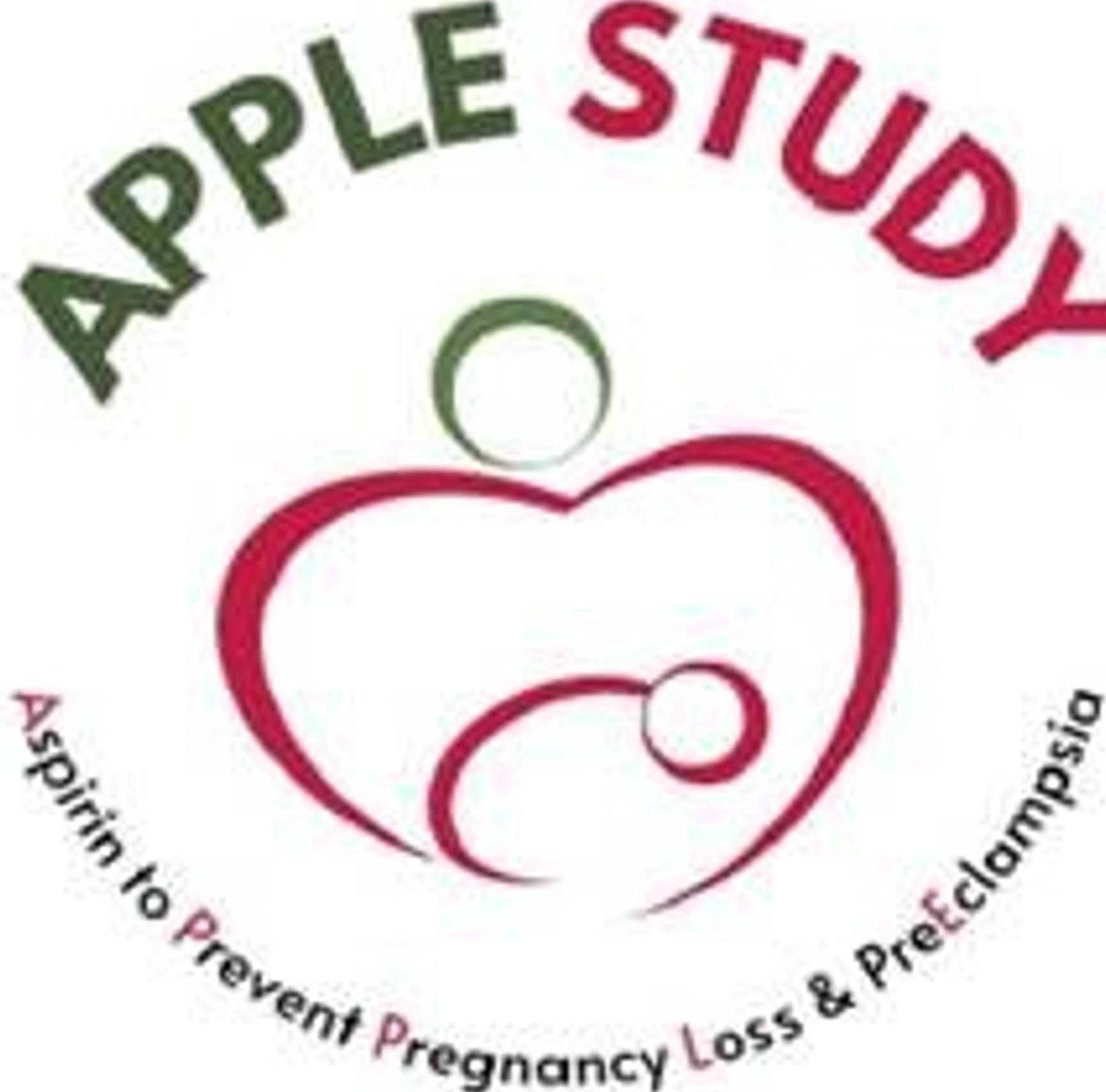APPLE: Aspirin to Prevent Pregnancy Loss and Preeclampsia (APPLE)

Brief description of study
Penn Medicine’s APPLE Study is recruiting participants before 7 weeks of pregnancy. The aim of this study is to determine if administering aspirin early in pregnancy can reduce the risk of preeclampsia and pregnancy loss. Will aspirin be an inexpensive and effective way to make pregnancy safer?
Participation involves no changes in prenatal care. The study consists of the following research procedures: taking the study medication immediately once received, completing questionnaires and monthly phone calls throughout the pregnancy.
Those who enroll will be randomized to one of two treatment options:
- 162mg of Aspirin daily - from start date to end of pregnancy.
- Placebo pills to 12 weeks pregnant, then 81mg of aspirin daily – from 12 weeks to end of pregnancy (this is the standard of care for low-dose aspirin)
To participate in the study, click here: https://redcap.med.upenn.edu/surveys/?s=KD8H4RLA3MR47CM3
For questions and additional information contact the study Coordinator: ObGynAPPLEStudy@pennmedicine.upenn.edu or 215-662-7727
Detailed description of study
This is a parallel assignment, randomized, double blind clinical trial of double low-dose aspirin (162 mg/day) begun no later than 6 weeks 6 days gestation, through delivery, to investigate the effects of early initiation of prophylactic aspirin therapy compared to standard of care (placebo through 12 weeks’ gestation, 81 mg aspirin thereafter through delivery) on reducing risk of both pregnancy loss and preeclampsia in pregnant people with one or more risk factors.
Eligibility of study
You may be eligible for this study if you meet the following criteria:
- Conditions: Early Pregnancy
-
Age: Between 18 Years - 45 Years
-
Gender: All
- Patients with a gestation less than or equal to 6 weeks, 6 days.
- Patients between 18–45-years old who have one or more risk factors for preeclampsia and/or pregnancy loss.
Find a site
,
You have contacted , on
Your message has been sent to the study team at ,
What happens next?
- You can expect the study team to contact you via email or phone in the next few days.
- Sign up as volunteer to help accelerate the development of new treatments and to get notified about similar trials.
You are contacting